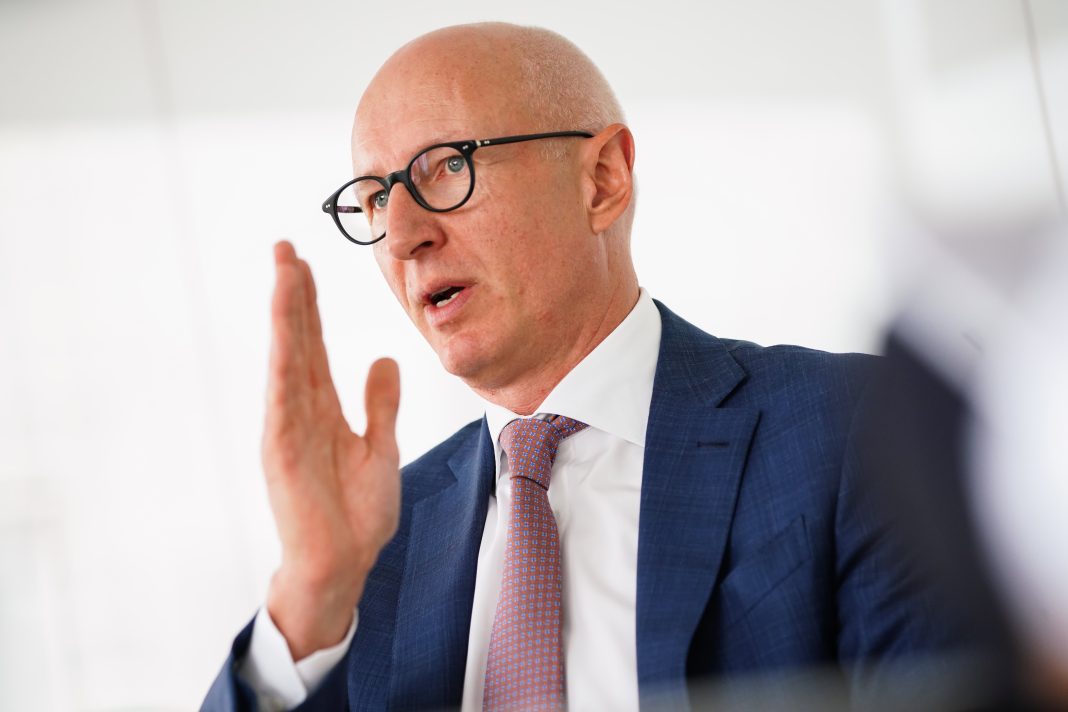In the ongoing dialogue surrounding healthcare costs in the United States, the spotlight has turned to Novo Nordisk, a Danish pharmaceutical giant, and its high-profile drugs, Wegovy and Ozempic. As demand for these weight loss and diabetes treatments surges, Lars Fruergaard Jørgensen, the CEO of Novo Nordisk, is set to face a Senate Health, Education, Labor and Pensions Committee hearing. This pivotal session, scheduled for 10 a.m. ET on Tuesday in Washington, D.C., comes in the wake of a broader investigation led by Senator Bernie Sanders, who has raised alarms over the exorbitant pricing strategies employed by pharmaceutical companies.
According to Senator Sanders, Americans are paying an astonishing premium for these medications compared to their counterparts in other countries. Before insurance, Ozempic is priced at nearly $969 per month, while Wegovy approaches $1,350. In stark contrast, patients in certain European nations can access these same treatments for less than $100 a month. For instance, Ozempic costs approximately $59 in Germany, and Wegovy is available for around $92 in the U.K. This disparity raises crucial questions about the fairness and sustainability of drug pricing in the U.S., especially as the country grapples with healthcare affordability.
Adding fuel to the fire, Sanders disclosed that executives from major generic pharmaceutical firms have indicated they could produce a version of Ozempic for under $100 a month, while no generic alternatives currently exist in the U.S. This situation illustrates not only the potential for more affordable treatment options but also the striking inefficiencies within the American healthcare system that hinder access to necessary medications.
The ramifications of these high prices extend beyond individual patients; they pose a significant threat to the overall U.S. healthcare system. Sanders, alongside other lawmakers, health experts, and insurance representatives, has warned that the skyrocketing demand for GLP-1 medications, which include Novo Nordisk’s offerings and similar products from competitors like Eli Lilly, could lead to a financial crisis within the healthcare industry. A recent estimate from the Senate Health Committee suggests that if half of all Americans utilized these weight loss drugs, it could cost the U.S. an eye-watering $411 billion annually — a figure that surpasses the total amount Americans spent on prescription drugs in 2022 by $5 billion.
The financial burden of these medications is already being felt. Medicare alone spent $4.6 billion on Ozempic in 2022, reflecting the growing reliance on such treatments among older adults. However, the current insurance landscape is murky at best; while many health plans cover GLP-1 medications for diabetes management, they often do not extend the same coverage for weight loss purposes. Furthermore, Medicare does not cover weight loss treatments unless they are prescribed for a related health condition, leaving many patients without access to these potentially life-altering drugs.
As this Senate hearing unfolds, it’s essential to recognize that the issue of drug pricing is a multifaceted problem that has drawn attention from both sides of the political aisle. The Biden administration, in its efforts to curb healthcare costs, is advocating for negotiations between drug manufacturers and Medicare, a significant aspect of the Inflation Reduction Act. Analysts anticipate that Ozempic may be included in the next round of price negotiations scheduled for 2025, with any changes taking effect in 2027. This could signal a pivotal shift in how medications are priced and accessed in the U.S.
The landscape of pharmaceutical pricing is fraught with complexities, and recent discussions highlight the urgent need for reform to ensure that patients can afford the medications they require without risking bankruptcy. As the hearing approaches, stakeholders across the healthcare spectrum will be watching closely, hoping for meaningful changes that prioritize patient welfare over profits. The stakes are high, and the implications of this dialogue could reshape the future of healthcare affordability in America.

